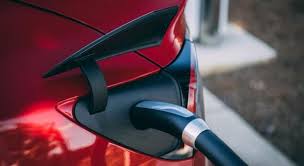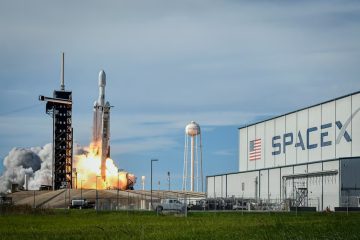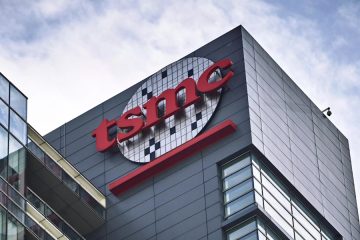EV Manufacturers Use Rebates to Counteract Declining Demand

If you’re interested in finding a great deal on a new car, it might be worth considering an electric vehicle.
With the decline in sales growth for battery-powered models, automakers and dealers are aggressively reducing prices and offering generous discounts to sell off their remaining inventory.
Automakers like Hyundai Motor and Ford Motor are currently providing cash rebates of up to $7,500 on select models. Others are utilizing aggressive lease deals that provide more affordable monthly payments or shorter contract lengths to entice buyers. Car companies are currently providing low-interest rate promotions to make expensive electric vehicles more accessible.
In a move that reflects a keen understanding of market dynamics, Tesla has significantly lowered prices across its entire range of vehicles, resulting in a substantial decrease in the starting price of certain models. Ford Motor has also reduced the price of its Mustang Mach-E SUV on multiple occasions this year.
For consumers, these promotions can be highly beneficial, as they help to narrow the price gap between an electric vehicle and a conventional gasoline vehicle. However, this is another indication that the previously thriving market for these models is losing momentum.
According to car executives and dealers, the discounts and price reductions are essential due to a decrease in buyers’ willingness to pay a higher price for an electric vehicle.
Discounts are a common strategy employed by carmakers to gain a larger market share or move less popular models. However, it’s important to note that these discounts can have a negative impact on profits and potentially lower the resale value for buyers of those particular models.
Amidst the pandemic, the business sector scaled down on these transactions, partly due to limited stock available for sale. Even now, the limited spending on incentives and other sales promotions continues to support high profits in the car industry.
The EV market has seen a unique trend lately, mainly due to the implementation of new restrictions on a $7,500 federal tax for EV buyers and a general decrease in demand for this technology. This poses additional challenges for buyers, such as the need for a regular charging infrastructure.
In April, the implementation of new regulations resulted in a restriction on the number of electric vehicle (EV) models that qualify for the subsidy. Instead of allowing sales to decline, many impacted brands have attempted to counterbalance the absence of the $7,500 tax credit by offering a sales incentive of equal value.
Tesla’s recent price reductions have created a ripple effect, prompting other companies to lower their prices as well.
During an earnings call in October, John Lawler, Ford’s chief financial officer, mentioned that the price has decreased more rapidly than anticipated.
The sales promotions have varied in their forms.
There is currently a $7,500 cash rebate being offered by Ford for select F-150 Lightning pickup trucks, in addition to the federal tax credit. Volkswagen is promoting a lease offer for the ID.4 electric SUV that requires no upfront payment.
According to car shopping website Edmunds, customers experienced a significant shift in pricing for electric vehicles in September. On average, they enjoyed a discount of approximately $2,000, which is a notable improvement compared to the previous year when they had to pay a premium of $1,500. According to the Edmunds data, shoppers across the industry saved approximately $930 off the sticker price in September.
The surge of discounts is also posing a risk to struggling startups, as they rapidly deplete their limited funds. In August, Lucid Group, a luxury electric-vehicle maker, reduced the prices of its vehicles by up to $13,000. Analysts view this as an indication of a decline in demand.
In October, Fisker, an EV startup, announced a reduction in the price of its recently released Ocean Extreme SUV by $7,500. This adjustment was made in response to the competitive landscape of the market. Fisker’s vehicles are not eligible for a federal tax credit due to their production being located outside of the United States. Additionally, the Lucid Air sedan is considered to be too costly.
According to dealers, a contributing factor to the issue is that a more affluent segment of early EV buyers has already made their purchase. Currently, the industry is facing a less enthusiastic group of consumers, who are already feeling the impact of high interest rates and increasing expenses.
According to Joseph Yoon, an analyst at Edmunds, there seems to have been a miscalculation regarding the demand and popularity of EVs.
Electric vehicles are currently experiencing slower sales compared to other vehicles on dealership lots. In September, retailers took more than two months to sell an EV, while gas-powered vehicles took around a month and gas-electric hybrids only took three weeks, according to data from Edmunds.
That trend can be quite costly for dealers who rely on loans to finance their fleet. According to Yoon, the longer a vehicle remains idle, the more it negatively impacts potential profit. The growth of EV sales in the U.S. has been accompanied by weaker demand than anticipated by carmakers, resulting in an accumulation of unsold models at dealer lots.
The slowdown poses a challenge for car companies investing significant amounts of money into new battery plants and factories to expand their production of electric vehicles. These investments were made during a time when there was significant demand for these models and a considerable waiting list.
Automakers are now taking measures to prevent an excess of EVs from accumulating at dealerships. In October, General Motors announced a delay in the opening of an EV truck plant, pushing the timeline to the end of 2025, which is a year later than originally planned. Last month, Ford announced a temporary reduction in production for its F-150 Lightning pickup. According to a union memo seen by The Wall Street Journal, there is a possibility that this reduction could become permanent due to weak demand.
The discounting activity is contributing to the reduction in the cost of battery-powered cars. In September, the average price of these cars was around $50,683, a significant decrease from over $65,000 last year, as reported by industry service provider Cox Automotive. In contrast, the prices for new vehicles have remained stable at around $48,000.
According to car executives and dealers, it is expected that the discounts will continue for the time being, particularly in the form of lease offers.
Leases have gained popularity among dealers as a means to sell EVs, as they offer a way to circumvent certain limitations such as domestic manufacturing, pricing, and buyer income restrictions that often disqualified many foreign-made vehicles. When it comes to an EV lease transaction, lenders have the opportunity to receive a $7,500 tax credit, which they can opt to transfer to the consumer in the form of a more favorable lease deal.
According to several dealers, a significant portion of EV transactions are currently lease agreements. In the past, leases have made up about 30% of the car market, but that percentage has decreased in recent years.
Leasing has gained significant popularity, even for vehicles like the Volkswagen ID.4 that are eligible for purchase credit. According to Ed Reed, the manager of the Ontario Volkswagen dealership in Southern California, leases have made up approximately 80% of ID.4 sales in the last three months.
According to Jeff Dyke, president of Sonic Automotive, the discounts are an expensive method to stimulate demand. Sonic Automotive is a publicly held car retailer with dealerships across the United States.
Can it be sustained indefinitely? No way. According to Dyke, finding a solution to reduce the cost of these items is imperative.










